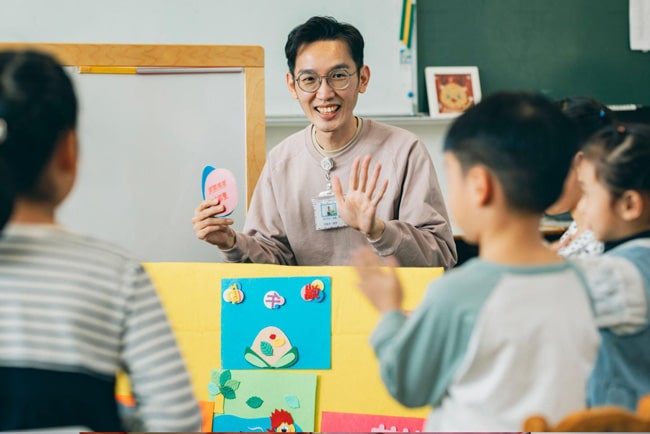
Creativity is a fundamental skill that plays a vital role in a child’s development. It allows them to think outside the box, solve problems, and express themselves freely. While some children may naturally have a flair for creativity, others may need guidance and support to unleash their full potential. This is where private tutors can make a significant difference.
In this article, we will explore how private tutors can help boost your child’s creativity and provide them with the tools they need to thrive.
1. Nurturing a Creative Environment
One of the first steps in developing a child’s creativity is to create an environment that fosters imagination and exploration. Private tutors can help set the stage for creativity by creating a safe and supportive learning space. They can encourage your child to think critically, ask questions, and explore different perspectives. By providing a nurturing environment, private tutors can help your child feel comfortable expressing their ideas and taking risks.
2. Encouraging Open-Ended Activities
Private tutors can introduce open-ended activities that allow children to think creatively and find their own solutions. Activities such as drawing, painting, and building with blocks can stimulate a child’s imagination and problem-solving skills. By encouraging open-ended activities, private home tutors can help children develop their own unique ideas and perspectives.
3. Incorporating Literature and Storytelling
Reading is not only a great way to improve language skills but also a powerful tool for boosting creativity. Private tutors can introduce your child to a wide range of literature and storytelling techniques. They can engage your child in discussions about their favorite books, characters, and storylines. By analyzing and interpreting stories, children can develop their critical thinking skills and expand their imagination.
4. Promoting Curiosity and Exploration
Private tutors can ignite curiosity in children by encouraging them to explore the world around them. They can take your child on nature walks, visits to museums, and science experiments. By exposing children to new experiences and encouraging them to ask questions, private tutors can help foster a sense of wonder and curiosity. This curiosity, in turn, fuels creativity and a thirst for knowledge.
5. Integrating Music and the Arts
Private tutors can incorporate music and the arts into their lessons to enhance creativity. They can introduce your child to various musical instruments, teach them to sing, or even explore different art forms like painting, sculpting, or photography. By engaging in these creative activities, children can express themselves in new ways and develop their artistic abilities.
6. Fostering Collaboration and Teamwork
Collaboration is a key aspect of creativity. 1 to 1 Private tutors can organize group activities or projects that require children to work together and share ideas. By fostering collaboration and teamwork, private tutors not only enhance social skills but also encourage children to think collectively and build upon each other’s ideas. This dynamic interaction can lead to innovative solutions and creative breakthroughs.
7. Embracing Technology
In today’s digital age, technology offers endless possibilities for creativity. Private home tutors can leverage technology to engage children in interactive learning experiences. They can introduce educational apps, online resources, and coding activities that allow children to explore and experiment with technology. By incorporating technology into their lessons, private tutors can help children develop digital literacy skills and discover new avenues for creativity.
8. Cultivating a Growth Mindset
A growth mindset is crucial for nurturing creativity. Private tutors can help instill a growth mindset in children by emphasizing the importance of effort, perseverance, and learning from mistakes. They can teach children that creativity can be developed and improved through practice and hard work. By fostering a growth mindset, private tutors empower children to embrace challenges, take risks, and continuously strive for improvement.
9. Providing Individualized Attention
Private home tutors have the advantage of providing individualized attention to their students. They can tailor their teaching methods and activities to suit your child’s unique interests and learning style. By understanding your child’s strengths and weaknesses, private tutors can create personalized lessons that stimulate creativity and maximize their potential.
10. Building Confidence and Self-Expression
Creativity thrives in an environment where children feel confident and comfortable expressing themselves. Private tutors can help build your child’s confidence by providing positive reinforcement and constructive feedback. They can encourage your child to share their ideas, thoughts, and opinions without fear of judgment. By nurturing self-expression, private tutors enable children to embrace their creativity and develop a strong sense of self.
11. Encourage Self-Expression Through Art
Art is a powerful medium for self-expression and can serve as a catalyst for creativity. As an art tutor, you can encourage your child to explore different art forms, such as drawing, painting, and sculpting. Provide them with a variety of art materials like watercolors, paintbrushes, crayons, and markers. Allow them the freedom to unleash their imagination on a blank canvas, without judgment or restrictions. By creating a safe and supportive environment, you can inspire your child to express themselves freely and develop their creative skills.
Conclusion
Private home tutors play a crucial role in nurturing and enhancing a child’s creativity. By creating a supportive environment, encouraging open-ended activities, and incorporating various creative mediums, private tutors can unlock your child’s creative potential. Through collaboration, technology integration, and individualized attention, private tutors empower children to think outside the box and develop a growth mindset. Ultimately, private tutors provide the guidance and tools necessary for your child to become a confident, imaginative, and creative individual.












